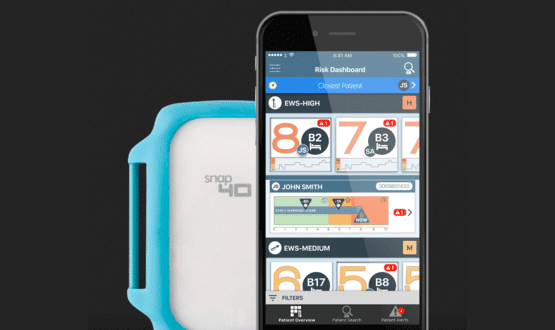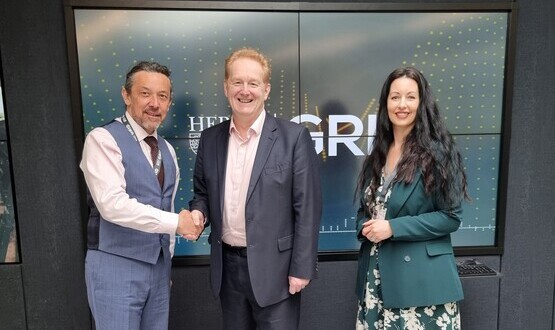Scottish health wearable start-up secured £2m

A Scottish start-up has secured £2 million for a technology that detects early deterioration in patients on wards and alerts clinicians.
Snap40 has produced a wearable device that monitors vital signs, and then performs a risk analysis on the data, sending the results across wi-fi to healthcare professionals.
The device also sends early warning alerts, app notification, text message or phone call, to ensure deteriorating patients are seen sooner.
Christopher McCann, co-founder and chief executive officer of Snap 40, dropped out of medical school to found his company in July 2014. “We’ve got pretty far on our own, we’ve got to the point of a bulk product and into a clinical study, basically on a boot strap”, said McCann.
“Our focus now is really getting our products to as many patients as we possibly can, both here in the UK and the US, and hopefully beyond thereafter.”
The money will grow the Edinburgh based team from five to seven, help get the product CE marking and regulatory clearances.
The company says the funding is the largest seed rounds achieved by a start-up based north of the border.
The arm band monitors respiratory rate, heart rate, relative change in systolic blood pressure, oxygen saturations, skin temperature and movement, and is currently being trialled in an unnamed NHS hospital. McCann commented he was “very, very happy” with the results.
He added that there is “potential to integrate with the trusts’ existing systems”, or there are mobile and web applications to access the information remotely.
The idea came after McCann observed during his medical studies that no nurse or doctor could get time to interpret continuous monitoring of 24 patients. “You have to do some kind of analysis on it”, he says, “to flag up which one we think it is they have to go and review.”
The data is transmitted every 30 seconds.
Wearable tech was one of the priorities NHS England chief executive Simon Stevens outlined during his speech at Health and Social Care Expo in Manchester last month.
The first portion of the money is from investment firm, Par Equity. A partner at the firm, Robert Higginson, said in a statement that Snap40 “has already demonstrated the ability to deliver to its plan, which is why we are supporting the business from such an early stage”.
In March this year, Snap40 won a Small Business Research Initiative for Healthcare Development Contract, which is an NHS England initiative to support new devices for emergency department.
Development of wearables have also been funded centrally at some of the seven test bed sites that are trialling innovative technologies including devices to help patients with dementia.




